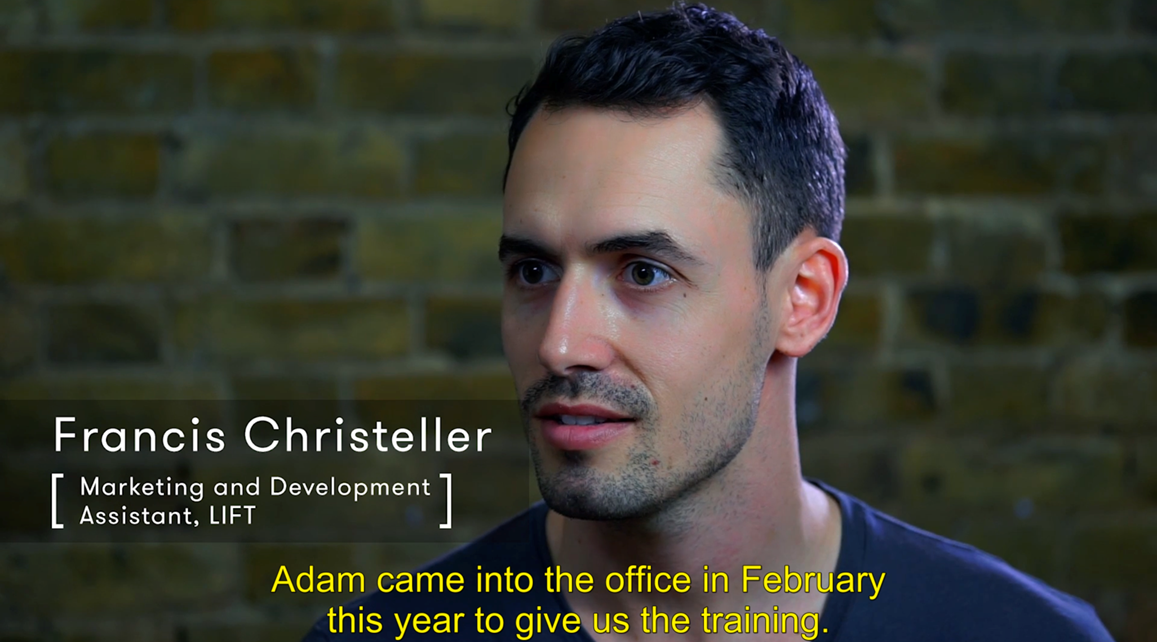During lockdown, access charity Stagetext saw a significant increase in their online services, representing a jump in accessible culture for deaf, deafened, and hard of hearing people.
While venues’ doors were closed and people stayed at home, the need increased for them to get their work online and available for everyone to watch, resulting in the increase in subtitling. However, since doors have reopened, the charity has seen a significant drop in subtitling demand, with 39% fewer request for digital subtitles during 2021/2022, when compared to 2020/2021.
Despite doors opening, the amount of captioned theatre performances has also not returned to pre-Covid levels, which translate to a 7.5% drop in performances in 21/22, when compared to numbers in 2019/2020, representing 24 fewer shows for deaf audiences to enjoy and share.
Melanie Sharpe, Stagetext’s Chief Executive commented on her frustration, ‘We know more people were at home during lockdown, but those 12 million deaf people in the UK, still want and need to access the arts. They want to visit a museum and be able to watch video exhibits; they want to see the trailer for a theatre production, with subtitles and then be able to book a captioned performance for the same show. There are millions of people who would pay to visit an exhibition, see a performance, or share a venue’s content, if the venue just made these things available to deaf people’.
The increased commitment from venues and arts organisations to make their work available to audiences during lockdown, saw a free live stream of Phantom of the Opera, in April 2020, gain a massive audience of 12.8 million viewers around the world. A staggering 2.5 million of those viewers watched with accessible subtitles provided by Stagetext. This clearly indicates what deaf audiences have been telling Stagetext for over two decades: people want access to the arts, both live and online and subtitles are fast becoming ubiquitous when watching content online.
This is further supported by Stagetext’s survey of 2021, conducted by Sapio, which found that 24% of the UK’s population now have subtitles switched on all the time at home, and a further 26% have them on some of the time. People are using subtitles, everywhere, for all sorts of reasons.
However, the recent Heritage Access 2022 survey, launched by VocalEyes in partnership with Stagetext, Autism In Museums, and the Centre for Accessible Environments, reviewed over three thousand museum and heritage websites and found a staggering 53% of their videos, were not subtitled. For Stagetext, this is a clear indicator that venues are not making their venues and services accessible for all.
Melanie Sharpe goes on to say, ‘with diversity and inclusion being a priority for venues, we hoped the increase in access we saw during lockdown, would remain once doors reopened. Stagetext exists so we can support, guide, and share knowledge with venues, our aim is to help them be more inclusive. Earlier this month we were successful in our bid for the next round of Arts Council England Funding. We are dedicated to supporting venues to deliver accessible arts and culture, and with this support from the Arts Council and with renewed drive from the sector, we can make the future even more accessible than online arts was in lockdown.’
Stagetext will be celebrating their annual campaign, Captioning Awareness Week 2022, from 14 to 20 November. This year’s campaign focuses on audience experience and asks venues to look at the quality of the customer experience they offer to their deaf, deafened and hard of hearing audiences.
The 15th of November 2022 marks 22 years since the very first captioned performance, which was the RSC’s Duchess of Malfi at The Barbican Centre in London.




